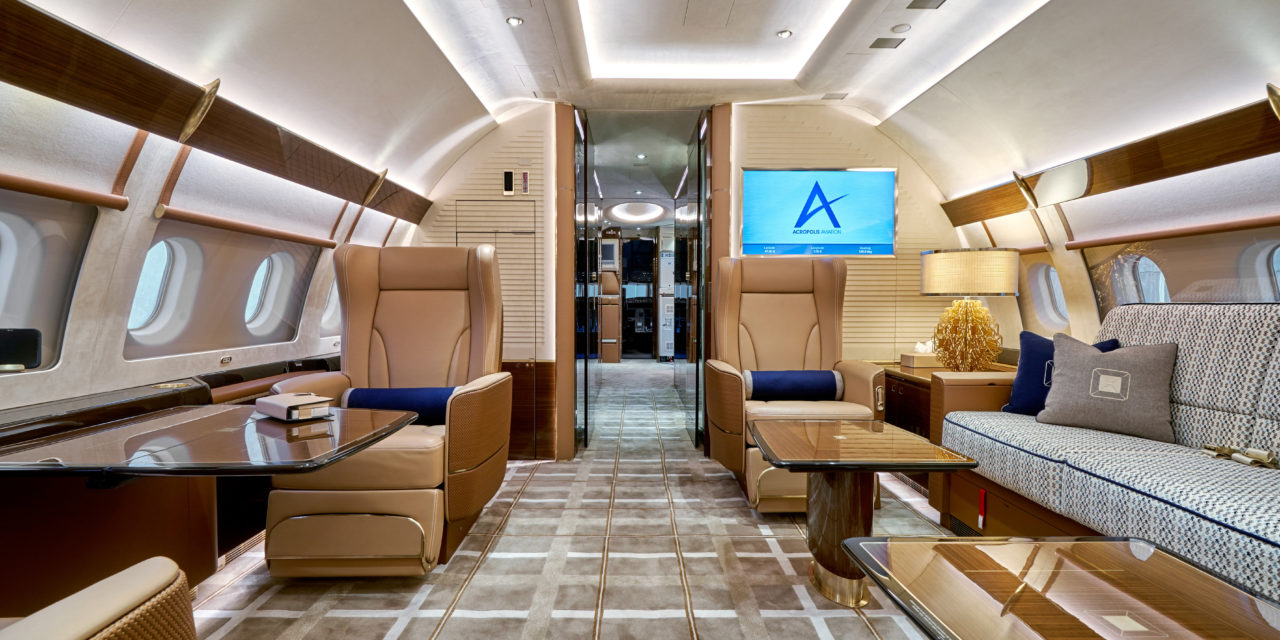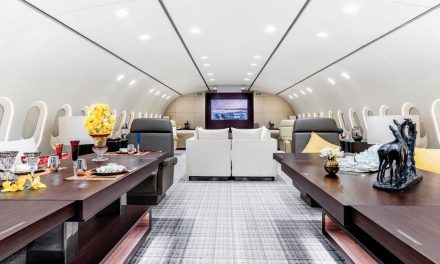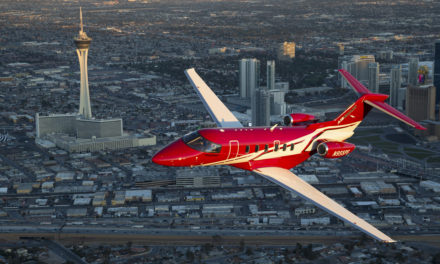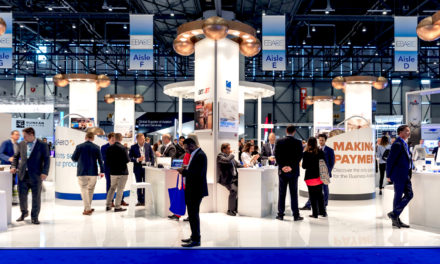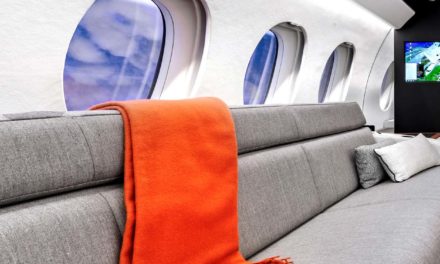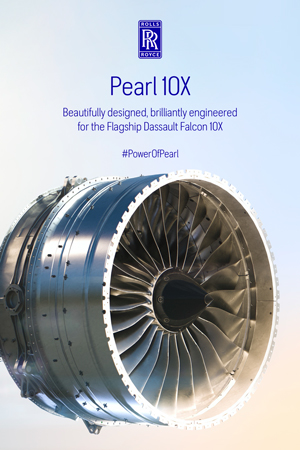By Sylvie Péron
AMAC Aerospace, headquartered in Basel, Switzerland, has grown over the past decade to become one of the very best completion centers worldwide. The organization has kept very busy over the past year, and following up to the September PPI (Pre-Purchase Inspection) of a Gulfstream G450, claims about five or six such PPIs per year on miscellaneous aircraft types.
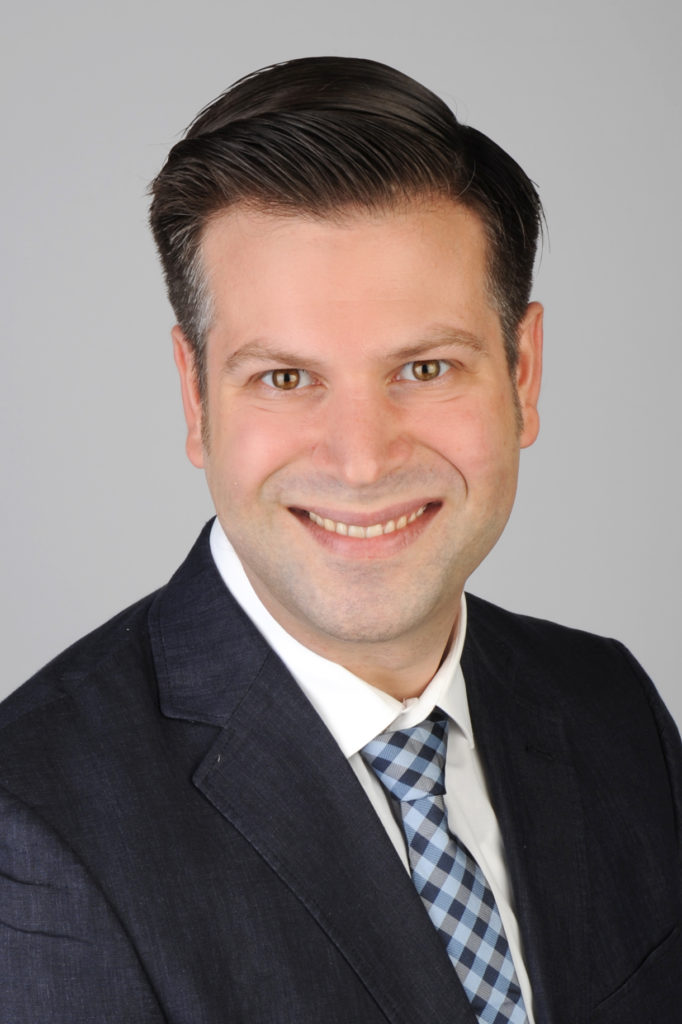
How such work is being conducted in these special times of social distancing ?
Since the beginning of the pandemic last spring, we adhere to all health measures from Germany, France and first of all, Switzerland. But we went even further:
- We introduced shifts to distance employees working in the hangars and aircraft; we closed the employee canteen and stopped the shuttle service
- We offered from the first days disinfection dispensers/solution, masks and gloves
- Whenever possible, we sent people to work from home and will do so again in the next weeks
- We informed and continue to do so regularly and remain transparent about the current status of cases at our facilities by mail and in person, and since last autumn, we have a weekly internal newsletter called ‘Covid Spotlight’
- We built-up our own test-center on site to provide quick tests for employees, suppliers and customers; all people coming to our facilities have to do a test to make sure they do not transfer the virus.
We introduced new services for cleaning the aircrafts with a special equipment; we do offer these services in Basel as well as in Turkey.
Since the pandemic started, AMAC has received some 21 requests for installing Aviation Clean Air* (ACA) systems.
This is how it works, eliminating all pathogens throughout the aircraft by accelerating nature’s cleaning process without adding any chemicals.
The Aviation Clean Air Component creates cold plasma. In the process, positive and negative ions attach to Hydrogen and Oxygen molecules in the water vapor present in the air. These ions have the property of clustering around micro particles, gases, airborne mold spores, viruses and bacteria. As this occurs, a chemical reaction takes place on the cell membrane surface of airborne biological (s) and they are transformed into OH radicals. These OH radicals rob the harmful biological of a hydrogen atom. The cells are inactivated by severing the proteins on the cell membrane that allows the OH radicals to penetrate the membrane and bond with the hydrogen of the cell. As a result, the cell will not be able to reproduce, will quickly die and thus eliminating the threat to humans. It is important to note that this process (that the ACA Component replicates) is the same process found in nature that controls micro particles, gases, airborne mold spores, viruses and bacteria. Therefore, it is reasonable to conclude, and rightfully so, that since the ACA process replicates natures natural process, there are no adverse effects to humans beyond what is naturally occurring in nature’s process.
Mechanism of Plasma for Inactivating Airborne Fungi: The positive (H+) and negative (O2-) ions cluster together on the surface of airborne fungi, causing a chemical reaction that results in the creation of OH groups called hydroxyl radicals
(-OH). The hydroxyl radical takes a hydrogen molecule from the cell wall of an airborne fungi particle. This inhibits the growth and or infestation of mold and in turn [as a by benefit] controls the musty odors related to mold growth (sour sock smell).
Mechanism of Plasma for Inactivating Airborne Virus: The positive (H+) and negative (O2-) ions surround the hemagglutinin (surface proteins that form on organisms and trigger infections) and change into OH groups called hydroxyl radicals (-OH). These groups take a hydrogen molecule from the hemagglutinin and change it into water (H2O). The ions destroy the virus surface structure. It envelops and spikes the structure of the virus on a molecular level. As a result, the virus cannot infect even if it enters the body.
Mechanism of Plasma for Deactivating Airborne Allergens:
The positive (H+) and negative (O2-) ions surround the airborne allergen and change into hydroxyl radicals (-OH). The hydroxyls then deactivate the molecules of the IgE antibody-binding site of the allergen. No allergic symptoms occur even if allergens enter the body.
Control of Gases and Odors
While the ACA Component is very effective at pathogen killing, it is also effectively and quickly controlling gases, odors and volatile organic compounds (VOCs). In the same way the ions surround pathogens and deactivate them, the plasma also surrounds gas molecules. As the gas molecules interact with the ions the covalent bonds of the gas are broken down. These gases are reduced to trace harmless gases, which are trace elements that are part of the natural composition of the natural air we breathe. For example, ammonia (NH2), which is quite pungent, is broken down into Nitrogen and Hydrogen. The air we breathe every day is 78% nitrogen and hydrogen, which is one of the common trace elements also found in normal healthy air.
AMAC’s Boeing team has performed several maintenance checks on privately owned aircraft. Are you seeing more of these maintenance missions coming your way during these endless pandemic times?
During the pandemic we have recognized the fact that many owners are taking the opportunity to have maintenance performed on their machines whilst flights are effectively grounded due to a variety of reasons. Many countries, regions and continents are locking down due to the spread of the virus and as such, the owners of such machines are put into the same group of people as normal travelers on commercial airlines, they have to stay on the ground unless they have suitable reason to travel. But we see two types of person, one who is willing to take commercial flights but cannot right now, therefore if they can afford the cost, they are willing to charter an aircraft; or the second type of person who didn’t need a private aircraft before but now they do. In any way you look at the situation, we win as either an MRO or Completion/Refurbishment center. Certainly small maintenance packages are being replaced with larger ones, as the uncertainty of what lays ahead is still an unknown, but for the savvy business aircraft owner, being prepared is a good preemptive step to being grounded.
The past few months have been a high maintenance season for AMAC, are you positioning the company as Europe’s main center of maintenance?
As a general statement, we would like to believe that we are already a market leader in providing bespoke maintenance services to our already established clientele. We serve many different platforms, and we have a variety of skilled personnel to take on any task that is required of us. As a group of companies, we have the biggest workload of maintenance coming from Basel. Whether it is requests for Non Destructive Testing, (NDT), bore scope testing on engines and fan blades or even standard maintenance work run by task cards, the bulk of our maintenance is carried out from Basel. With a reduction in demand in certain locations we have an added advantage built in within our company. Where we lack certain skills, we can pull them from other locations.
For example we are running on a double shift system now due to the virus, therefore we do not have the majority of our workforce on site but where we might lack a specialized individual and assuming his/her country of residence allows him/her to travel, we can pull that expertise from one location and have them positioned elsewhere, giving the situation a quicker turnaround for finding the right specialized skill sets but also not incurring any delays that might be associated if we had to source someone from outside the company.
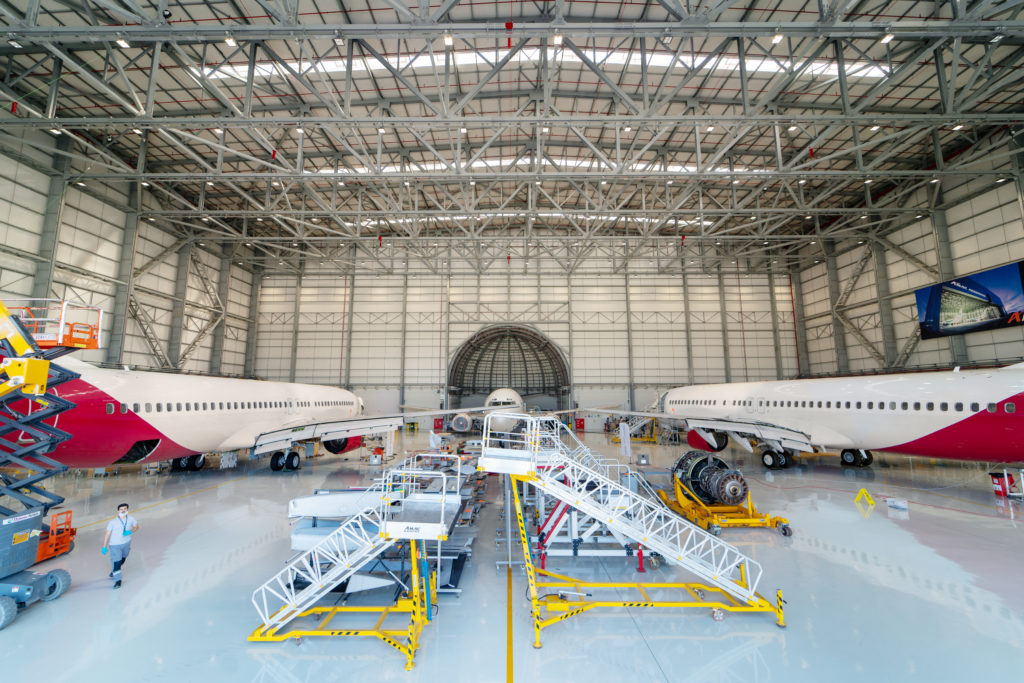
You are seeing a continuous demand for on-board connectivity. How important to your customers is high-speed Internet experience on their aircraft? Is this the latest trend in completion & maintenance?
With extended time on the ground due to the Corona virus, we do have an increased demand in Satcom connectivity. Currently we are channel leaders for Honeywell on their JetWave program. To date we have installed more than 30 systems onto a variety of aircraft. People have natural tendencies to have what they are accustomed to, therefore the same connectivity with the same bandwidths as what they experience at home. The same now applies to aircraft owners, where connectivity issues are made redundant by the hands of human ingenuity. Where we have faster, broader downloads on the ground the same can be true of what to find in the air. Besides Honeywell’s JetWave we also cater for other brands and provisions, such as GOGO, who have an alternative offerings.
AMAC is also very active in Turkey, particularly in Bodrum.
Our facilities in Turkey offer maintenance services through an array of different channels. Firstly in Istanbul, we offer line & base maintenance on Pilatus and Dassault related products. Whether it is standard maintenance or a special job, we have well-established connections with both OEM’s. We envisage that Dassault will continue to promote their new generation aircraft into Turkey as we have an aging fleet of current aircraft in the country. We hope that the shows in Turkey will allow existing and new owners to see the benefits of such wonderful aircraft.
As for Bodrum, we have a mixed business model that is proving to be worthwhile. During the winter we offer commercial airline maintenance and during the summer period, we flip those service offerings to Business Aviation clients who frequent down to the Turkish Riviera. Both line & base maintenance are possible on Airbus & Boeing in Bodrum and so far, we are the only MRO on site. If one had not yet visited Bodrum, then they are missing a location on their bucket lists, but rest assured we are only down the road in case you need support on your aircraft!
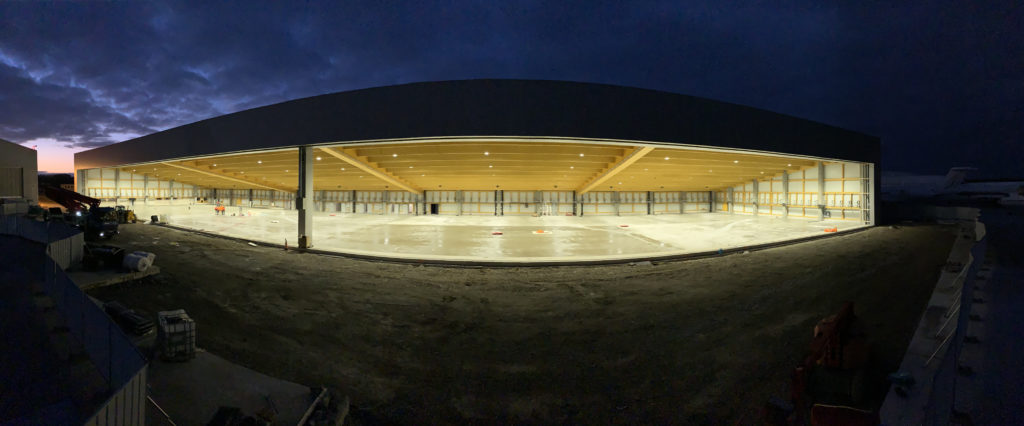
The Pilatus PC-24 jet is generating a lot of interest. As the aircraft exclusive sales representative in the Middle East, what response are you getting from prospects?
Pilatus aircraft are like an acquired taste. People will quite often observe the aircraft from outside and dismiss the potentials, without sitting inside it. Once someone sits inside the aircraft it is quite noticeable to see a marked change in the way they have come to appreciate what they’re in. With all this said, we sold 3x PC-12NG in 2020 and to date another 2x more PC-12NGX aircraft.
As for the PC-24, this is an amazing little jet with bags of potential. With a variety of cabin configurations, a variety of interior materials to decorate, this jet has been very successful around the world. Pilatus is diligent. We support them with their approaches and we are their champion when referring this aircraft to the region.
The feedback we receive from prospects is very positive, we register a big demand in the region and we are sure this will also be true in the future. This aircraft is an excellent product and meets an enormous market need respectively. It completes a niche in the market.
Some of the constraints we have is the fact that there are not enough aircraft produced so far to go everywhere around the world. We noticed a large number of aircraft fly to new homes in North America but it won’t be long before we have sold our first aircraft into the ME region. With the eventual likelihood that both the PC-12 and PC-24 will be in the region, we are now entertaining whether to set up a satellite station to look after the eventual fleet that exists in this region or whether we should do something ourselves.
Further to the completion of Acropolis II, the first VIP ACJ320neo project, are you seeing a significant interest within your customer-base regarding the completion of such an aircraft?
This first A320neo completion completed at AMAC Aerospace has generated several new opportunities and of course demonstrated once again our strong position on the completion market by our real passion and the continuous high-end quality standards improvements.
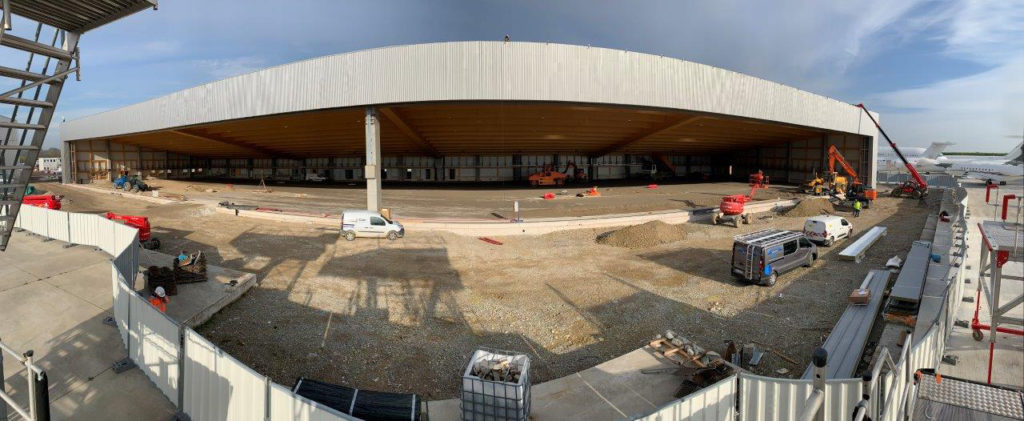
Finally, the opening of Hangar 5 in Basel is scheduled for early 2021. Could you please tell us more about the actual opening date, and what this long hangar will be dedicated to?
We will soon open the hangar doors of hangar number 5 to welcome the first aircraft. It will be dedicated to Bombardier & Gulfstream maintenance services, with a capacity of up to five Global 7500 aircraft (5x bays). Hangar number 1 will be reserved for BBJ and A320 aircraft, while the 3 wide-body hangars can cater for a variety of combinations of aircraft sizes. We would love to be able to soon invite our friends, clients and industry colleagues for an opening ceremony to celebrate together – but this will depend how the pandemic will develop.
*(Source: Factsheet ACA, Aviation Clean Air)

